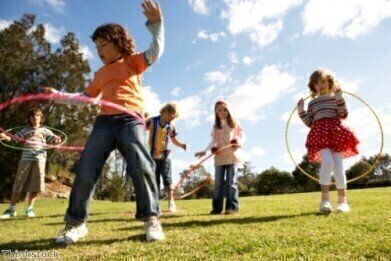-
 Advertisers failing to target older demographics
Advertisers failing to target older demographics
Bioanalytical
Physical fitness in childhood 'boosts mental performance'
Jun 20 2014
A new study has indicated that physical fitness in childhood and adolescence is not only beneficial for both physical and mental health throughout life, but can have a major effect on brain performance.
Experts led by Dr Irene Esteban-Cornejo, from the Autonomous University of Madrid, said there is a "growing body of evidence" suggesting that activity in childhood may also play a key role in brain health and academic performance.
In a new study, scheduled for publication in the Journal of Pediatrics, researchers studied the independent and combined influence of components of physical fitness on academic performance.
They paid particular attention to cardiorespiratory capacity, muscular strength and motor ability, which are key components of physical fitness that have documented potential to improve health, and each of which may have different effects on the brain and, subsequently, academic performance.
"Because these physical fitness components are highly associated with each other, it is important to differentiate which physical fitness components are important in relation to academic performance," Dr Esteban-Cornejo.
After analysing the records of 2,038 Spanish children and adolescents aged between six and 18, the researchers found that cardiorespiratory capacity and motor ability, both independently and combined, were related to academic performance.
However, the association of academic performance and physical fitness was stronger for motor ability than cardiorespiratory capacity, meaning motor ability may be more important for academic performance.
Contrastingly, children and adolescents who had both lower levels of cardiorespiratory capacity and motor ability had lower grades, while muscular strength was not independently associated with academic performance.
Despite the combined components of physical fitness influencing academic performance, the new study suggests that cardiorespiratory capacity and, to a greater extent, motor ability, may be greater influences, Dr Esteban-Cornejo notes.
"Having high levels of cardiorespiratory and motor fitness may, to some extent, reduce the risk of school failure," she explained.
She concluded that efforts should be made to promote physical activities for children and adolescents that involve aerobic exercises and motor tasks to enhance cardiorespiratory capacity and motor ability, thereby improving academic development.
Digital Edition
Chromatography Today - Buyers' Guide 2022
October 2023
In This Edition Modern & Practical Applications - Accelerating ADC Development with Mass Spectrometry - Implementing High-Resolution Ion Mobility into Peptide Mapping Workflows Chromatogr...
View all digital editions
Events
Apr 28 2024 Montreal, Quebec, Canada
May 05 2024 Seville, Spain
May 15 2024 Birmingham, UK
May 19 2024 Brno, Czech Republic
May 21 2024 Lagos, Nigeria













